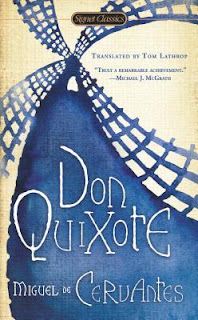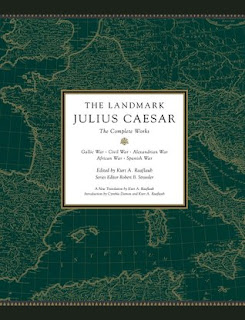
Cities of the Plain
"The fire burned down and it grew colder and they sat close to the flames and hand fed them with sticks and with old brittle limbs they broke from the windtwisted wrecks of trees along the rimrock. They told stories of the old west that once was. The older men talked and the younger men listened and light began to show in the gap of the mountain above them and then faintly along the desert floor below." (p 91)
Cormac McCarthy concludes his border trilogy about the west with a book that is spare and almost allegorical in its storytelling. All the Pretty Horses combined intensely lyrical prose with the laconic wit of its cowboy protagonists while its sequel, The Crossing, sent two young brothers on a quest that plunged them into the bloody maelstrom of Mexican politics. Cities of the Plain unites John Grady Cole with his older "buddy" Billy Parham, and centers on a doomed relationship between John Grady and a Mexican prostitute. It is notable for its shockingly brutal feral dog-roping scene, its coruscating, vivid depiction the lost world of small horse-ranch life in the American southwest, and also for its fabular epilogue, an extended meditation on the nature of narrative and the forms of human destiny.
With Cities of the Plain the dreams have receded, the young men Billy and John Grady are older and their journeys have goals. This is a book that is bleaker in the telling even as the romanticism of John Grady Cole provided significant interest for this reader. The time is 1952, the place a cattle ranch in New Mexico. The West is changing as suggested by a brief interchange between John Grady and Billy early in the novel:
"What are you readin? Destry." (p 59)
Destry Rides Again by Max Brand is a classic example of the "myth of the old West". This is the life that is fading in the early 1950's and the question is will our heroes adapt or rebel against the inevitability of change. The change is not without difficulty and there are the ghosts of the past which they face as depicted in the following passage:
"They sat against a rock bluff high in the Franklins with a fire before them that heeled in the wind and their figures cast up upon the rocks behind them enshadowed the petroglyphs carved there by other hunters a thousand years before." (p 87)
Shadowed by ghosts of the past and chastened but not defeated by their youthful misadventures, John Grady Cole of All the Pretty Horses and Billy Parham of The Crossing have become blood brothers of a sort, clinging stubbornly to a vanishing way of life. With the U.S. Army proposing to turn their employer's ranch into a military base, the two fantasize about owning a little spread in the mountains, where they might run a few cattle and hunt their own meat. But when John Grady falls in love with a teenage prostitute in a brothel called "White Lake" across the Rio Grande, his desires collide with powers reminiscent of his those he encountered in All the Pretty Horses.
''There's a son of a bitch owns her outright that I guarangoddamntee you will kill you graveyard dead if you mess with him,'' Billy warns him. ''Son, aint there no girls on this side of the damn river?''
Alas, for John Grady there are none that can compare with Magdalena. He does not worry about Eduardo, her pimp, with whom he must deal if he is to have her and his stubborn idealism sets in motion a chain of events that cannot be avoided. In fact, the question of one's destiny is present throughout this final part to the trilogy. Before the ultimate scenes of the novel there is a telling exchange between Billy and John Grady.
"John Grady nodded. What would you do if you coundnt be a cowboy?
I dont know. I reckon I'd think of somethin. You?
I dont know what it would be I'd think of.
Well we may all have to think of somethin." (p 217)
Combine McCarthy's two previous novels with this somber tome and you have a masterpiece of contemporary fiction and a worthy contribution to the literature of the West. All three are works of a master story-teller, an author who speculates (some might say pontificates) on the nature of stories. So I will end with one moment of speculation about stories among many that I encountered during my journey through the trilogy:
"These dreams reveal the world also, he said. We wake remembering the events of which they are composed while often the narrative is fugitive and difficult to recall. Yet it is the narrative that is the life of the dream while the events themselves are often interchangeable. The events of the waking world on the other hand are forced upon us and the narrative is the unguessed axis along which they must be strung. It falls to us to weigh and sort and order these events. It is we who assemble them into the story which is us. Each man is the bard of his own existence." (p 283)















